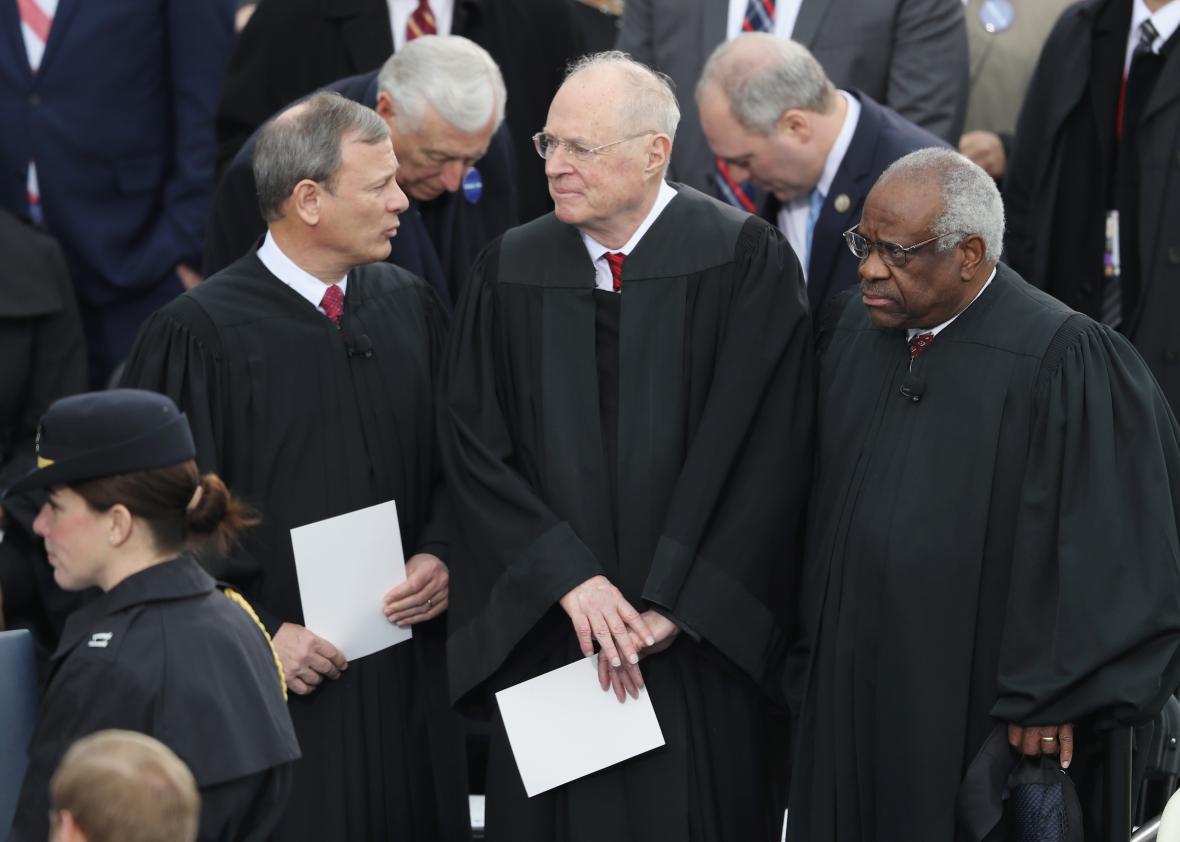I asked both Chief Justice William Rehnquist and Justice Sandra Day O’Connor their thoughts about how justices should think about when to retire from the Supreme Court. I interviewed both of them publicly at Duke. At dinner at my house the night before my 2003 interview with Justice O’Connor, I went over the matters I was planning to raise the next morning and asked her if there were any questions she did not want me to ask. She hesitated, then said, “Don’t ask about retirement. It’s too sensitive and anything I say might be misconstrued.” She announced she was leaving the court just more than two years later.
I asked the question somewhat differently when I interviewed Rehnquist. I asked him, “Is it inappropriate for a justice to take into account the party or politics of the sitting president when deciding whether to step down from the court?” He replied, unhesitatingly, “No, it’s not inappropriate. Deciding when to step down from the court is not a judicial act.” It was a quintessential Rehnquist response: smart, concise, and to the point. He was saying that while it is wrong for a justice to consider partisanship in doing the work of the court, leaving the court—like being named to the court—is appropriately a political act, not part of the work of the court.
Every year, it seems, there are reports that a justice is or is not going to retire at the end of the term. I have never known such reports to be correct. I guess that since justices who live long enough do eventually retire, some prognosticator is going to be correct fortuitously some year. But that, I believe, is just by chance. Justices just don’t tell people who might tell others when they are going to announce their retirement.
Presidents are understandably eager to know when they will have the chance to make an appointment to the court. It is a signal part of a president’s legacy. Franklin Roosevelt was long dead when his New Deal justices voted to strike down segregation in the South. Some presidents think it’s God’s will whether they have a vacancy to fill. Other presidents create their vacancies. Jimmy Carter and Lyndon Johnson each served a full term without what I would call a naturally occurring vacancy on the court. Carter thought that was his fate. Johnson created two vacancies so he could name Thurgood Marshall and Abe Fortas to the court.
Johnson appealed to Justice Arthur Goldberg by telling him he was the greatest negotiator in the world, and only he could find a way to end the Vietnam War. Goldberg resigned from the court to accept a post at the United Nations and was never seriously consulted by Johnson again. And Johnson had his seat to fill. Johnson, whose strength was said to be that he knew every man’s weakness, then appealed to Justice Tom Clark’s familial devotion. Johnson put out the word that he would like to nominate Clark’s son Ramsey to be attorney general but thought it a conflict if Ramsey’s father were on the court. And then Johnson had his second seat. (And Johnson did follow through on his promise to make Ramsey Clark attorney general.)
So, the answer to the question being posed in this headline is that I don’t know whether any justice is planning to step down. If one does retire, I think it as likely to be Justice Clarence Thomas as Justice Anthony Kennedy. But I don’t know, and I’m pretty sure no one else does either.
